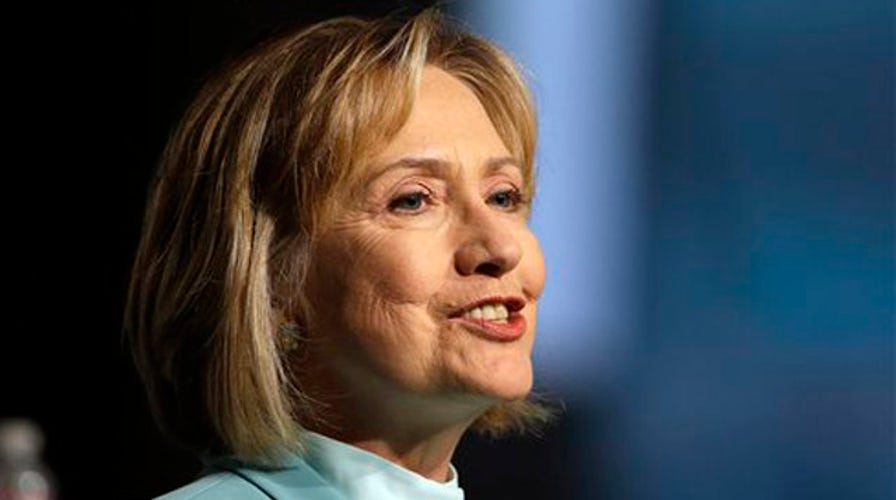The Republican National Committee has voted to boycott any presidential primary debates planned by CNN and NBC if they proceed with lengthy television features on Hillary Clinton, widely expected to be a 2016 Democratic candidate.
With no audible dissent, GOP officials approved a resolution backing the position at their annual summer meeting in Boston on Friday.
The RNC claims that a Clinton-themed documentary and a separate miniseries -- in the works from CNN and NBC, respectively -- will put a "thumb on the scales" in the upcoming 2016 presidential election.
The draft resolution, obtained by Fox News in advance and later voted on by RNC officials, calls on CNN and NBC to cancel what it describes as "political ads masked as unbiased entertainment."
And if they don't, the resolution states, "the Republican National Committee will neither partner with these networks in the 2016 presidential primary debates nor sanction any primary debates they sponsor."
Before the vote, RNC Chairman Reince Priebus decried what he called the "obvious bias" of a network that would spotlight Clinton in this fashion.
"We're done putting up with this nonsense. There are plenty of other outlets. We'll still reach voters, maybe more voters. But CNN and NBC anchors will just have to watch on their competitors' networks," he said. "The media overplayed their hand this time."
The resolution claims the programming would show "political favoritism" in the election and jeopardize the credibility of the networks.
Last month, CNN Films announced it was producing a documentary on Clinton to premiere next year, first in theaters and then on CNN.
NBC also announced a four-hour "Hillary" miniseries starring Diane Lane, on the life of the former secretary of State and first lady.
In a statement, CNN said its division planned to air its documentary about Clinton in 2014.
"The project is in the very early stages of development, months from completion," the CNN statement read. "We encouraged all interested parties to wait until the program premieres before judgments are made about it. Unfortunately, the RNC was not willing to do that."
Even before the Clinton dispute, Republican leaders favored plans to have fewer presidential debates with more friendly moderators. They believe their 2012 presidential candidates spent too much time beating up on each other in last year's monthslong primary season, contributing to Mitt Romney's loss.
"Our party should not be involved in setting up a system that encourages the slicing and dicing of candidates over a long period of time with moderators that are not in the business of being at all concerned about the future of our party," Priebus told reporters.
Democratic National Committee spokesman Michael Czin criticized Friday's vote.
"Instead of modifying their policies to actually present smart solutions for middle class families, the only thing the GOP can unite behind is a plan to continue to limit the audiences -- and voters -- to whom they will communicate," he said.
The Associated Press contributed to this report.





